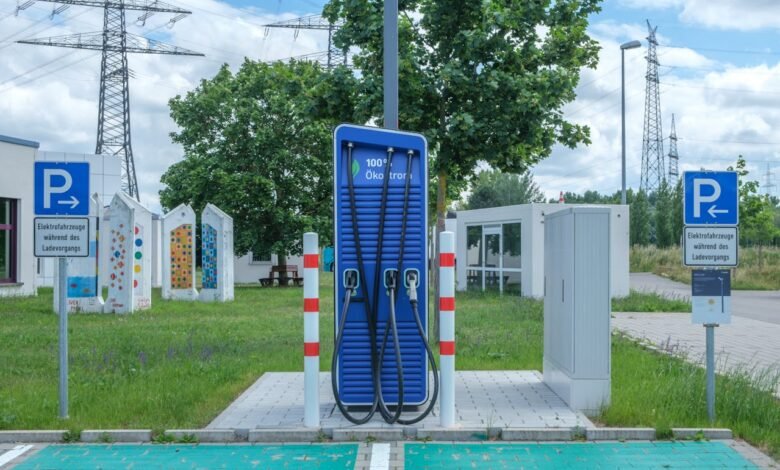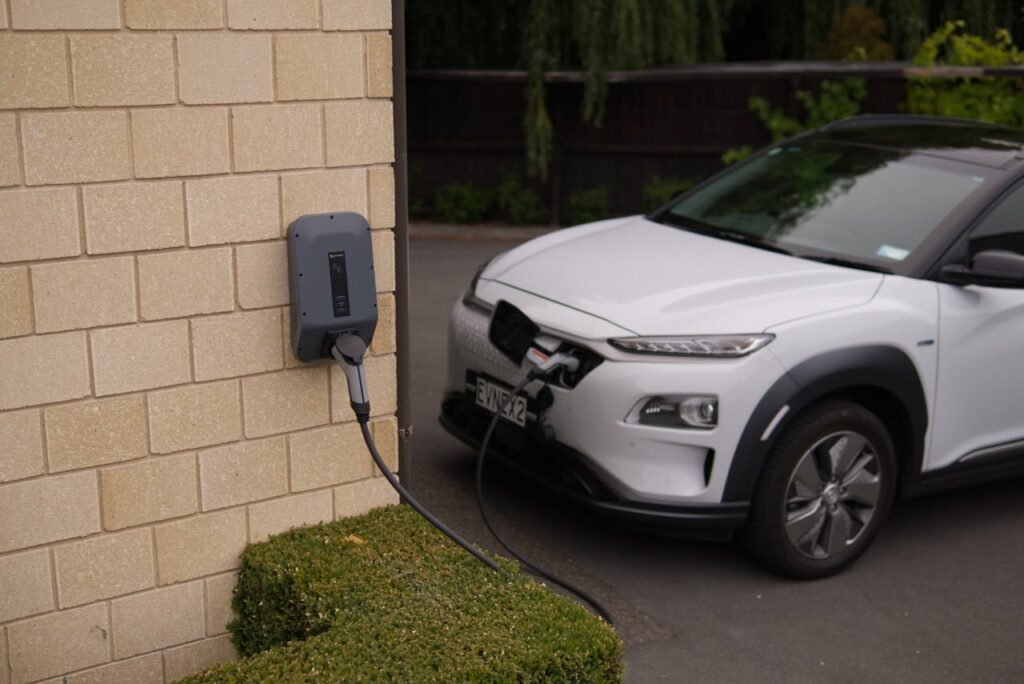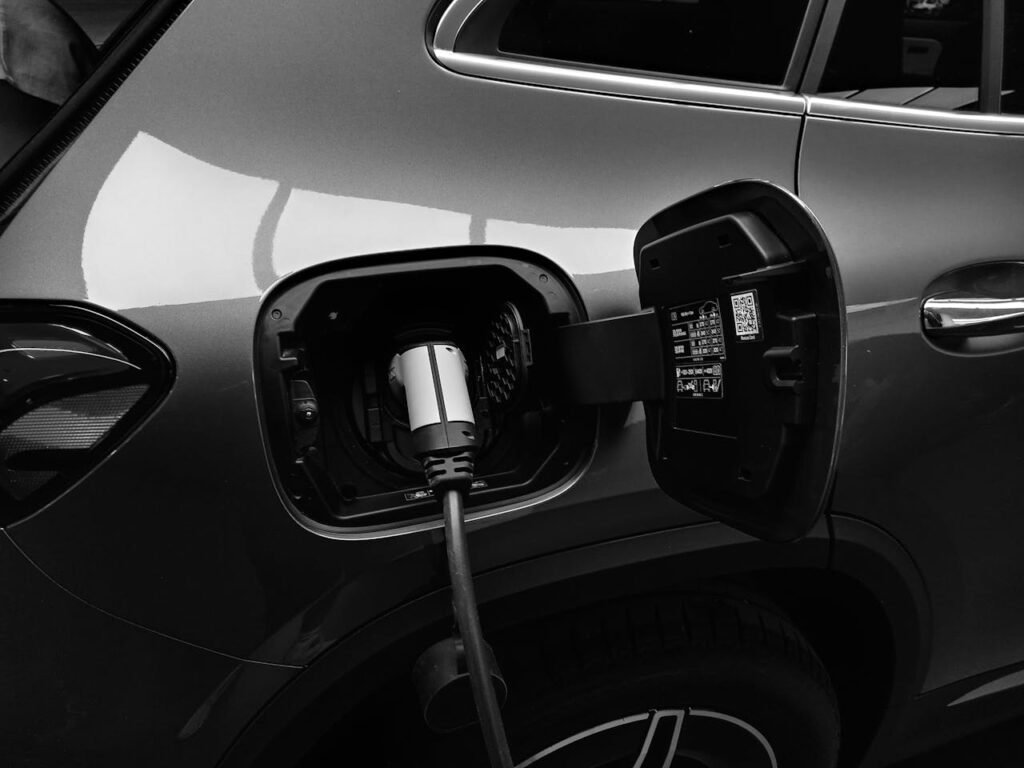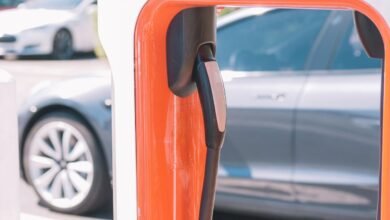Charging Ahead: How Businesses Can Benefit from Installing EV Charging Stations

With the UK experiencing such a boom in the use of electric vehicles, companies have a special chance to take advantage of this expanding industry by installing EV charging points. This is an end-to-end guide on the strategic, the economic, and the eyes on the ground of the reasons as to why a business needs to go electric to embrace the environmental friendly customers and at the same time boosting their competitive advantage in the booming electric future.
The Electric Revolution: Introduction:
The car market of UK is changing dramatically. Having more than 1.55 million fully electric cars already registered in the UK roads and the governmental intention to forbid new petrol and diesel vehicles sales by 2030, electric vehicles (EVs) stopped being a niche product, now they are the future12. This is a move that will be a unique way out that never-before thinking businesses can place themselves at the head of this electric revolution.
With more people than ever buying EVs, as one electric vehicle is sold every 60 seconds in July 2023, access to the charging infrastructure has never been high in demand. Being keen to the fact that such a trend is occurring and reacting on it today, businesses will receive a considerable competitive advantage and help the UK achieve its sustainability goals.
Key Business Benefits of EV Charging Stations

Customer Attraction and Retention
By having EV charging installations in your business, you will become the place where environmentally-conscious motorists can stop. Survey shows that 87 per cent of EV consumers and prospective customers declare that charging facilities proximity affects the outlets they patronize3. This fact alone shows how amazingly attractive the charging infrastructure can be.
EV drivers are likely to spend 20-45 minutes charging their cars and therefore provide a captive audience that has time to consider your business products. When your customers are there to take a coffee break, or to do some shopping, or have a service with you, this spend of a lot of time spent becomes itself a conversion to sales. Companies that offer charging stations attest that clients usually get to learn about new services or products that they might have never purchased.
Competitive Differentiation
As the market gets even busier, EV charging stations present a practical aspect of differentiation over the rivals. Not all UK businesses have installed charging points with the data indicating that retail outlets have an average number of three charging points, even though the number is growing. Businesses can position themselves as innovative and customer-oriented before their competitors by putting in place charging infrastructure ahead of time.
The early-adopter edge is most useful since owning an EV is becoming increasingly popular. Companies that delay are losing their market shares to their rivals who have already adopted electric infrastructures .
Enhanced Brand Image and Sustainability Credentials
Environmental and ethical considerations are becoming some factors that influence the purchasing decision of modern consumers. The 2023 sustainability survey organized by Deloitte indicated that one-third of consumers had ceased buying products of brands if a sustainability issue had been raised, and one in four are ready to pay high prices on eco-friendly goods.
By putting in place EV charging stations, you prove that you are concerned about the environment and you will be perceived as a socially aware and innovative brand. The boosted image will be able to draw the attention of the environmentally conscious customers who specifically go to stores with like-minded companies.
Employee Attraction and Retention
The advantages are not only limited to customers but also employees. A study conducted by the US Department of Energy also discovered that, among employees, when their employers provide free charging at the workplace, then employees are 20 times more likely to buy an electric vehicle. This value points out that charging stations may emerge as an important employee benefit, which may be used to attract, retain and maintain the highest stocks of talent.
As the younger generations, especially millennials and Gen Z, are getting more conscious of environmental responsibility, EV charging may be an especially effective solution to attract these employees, who consider environmental sustainability one of the most important metrics in their workers.
Revenue Generation Opportunities
EV charging stations can create new revenue streams for your business. Whether charging per session or per kilowatt-hour, businesses can generate income from charging services whilst covering operational costs1. Some businesses report that charging fees helps offset electricity costs and contributes to overall profitability.
Additionally, the extended customer dwell time often results in increased spending on primary business offerings, creating indirect revenue benefits that can be substantial.
Financial Considerations and ROI

Initial Investment and Costs
The installed cost of commercial EV charging points typically ranges from £1,000 to £1,500 plus VAT, depending on the charger model, installation requirements, and site-specific factors8. However, the UK government’s Workplace Charging Scheme provides a £350 grant per charger for up to 40 units, significantly reducing the initial investment8.
Return on Investment
Financial projections suggest that EV charging stations can pay for themselves within 3-6 years. Based on typical usage patterns, a single charging point used by one person daily (250 days annually) can generate approximately £200 annual profit after operational costs8. With two daily users, the payback period reduces to under three years.
These calculations demonstrate that EV charging infrastructure represents a sound financial investment with reasonable payback periods, particularly when considering the additional benefits of increased customer spending and brand enhancement.
Operational Costs
Annual running costs are relatively modest, typically under £50 per charger for data fees and maintenance8. This low operational overhead ensures that ongoing costs don’t significantly impact profitability once the initial investment is recovered.
Types of Businesses That Benefit Most
Retail Locations
Shopping centres, supermarkets, and retail parks are ideal candidates for EV charging infrastructure. Customers naturally spend extended periods at these locations, making them perfect for charging sessions. Retail parks lead the sector with an average of five charge points, though this still falls short of growing demand5.
Hospitality and Entertainment
Restaurants, hotels, cinemas, and leisure facilities benefit significantly from EV charging. Customers visiting these venues typically stay for extended periods, providing ample time for vehicle charging whilst enjoying services.
Workplace Locations
Office buildings and business parks can attract tenants and employees by offering charging facilities. This is particularly valuable for businesses looking to enhance their employee value proposition and attract environmentally conscious talent.
Healthcare and Public Services
Hospitals, clinics, and government buildings serve customers who often have extended visits, making them suitable for charging infrastructure whilst demonstrating public sector commitment to sustainability.
Implementation Strategies
| Implementation Phase | Key Considerations | Timeline |
|---|---|---|
| Planning | Site assessment, electrical capacity, planning permissions | 2-4 weeks |
| Design | Charger selection, installation layout, user experience | 2-3 weeks |
| Installation | Electrical work, charger mounting, testing | 1-2 weeks |
| Launch | Staff training, marketing, user onboarding | 1 week |
Site Assessment
Conduct a thorough electrical capacity assessment to ensure your premises can support charging infrastructure. Consider factors such as available parking spaces, proximity to electrical supplies, and accessibility for users.
Charger Selection
Choose between fast chargers (7-22kW) for longer stays or rapid chargers (50kW+) for quick top-ups. The choice depends on your customer behaviour patterns and available electrical capacity.
User Experience
Implement user-friendly payment systems and clear signage. Consider smartphone apps for booking and payment to enhance customer convenience.
Government Support and Incentives
The UK government actively supports EV charging infrastructure through several schemes:
- Workplace Charging Scheme: £350 per charger for up to 40 units
- EV Infrastructure Grant: Support for staff and fleet charging
- Tax incentives: Beneficial treatment for corporate EV use
These incentives significantly reduce implementation costs and improve return on investment calculations4.
Future-Proofing Your Business
Preparing for Growth
With the 2030 ban on new petrol and diesel vehicles approaching, EV adoption will accelerate dramatically. Businesses that install charging infrastructure now position themselves advantageously for this inevitable transition6.
Scalability Considerations
Plan for future expansion by ensuring electrical infrastructure can support additional chargers as demand grows. This forward-thinking approach avoids costly retrofitting later.
Technology Evolution
Stay informed about emerging charging technologies such as ultra-rapid charging and wireless charging to ensure your infrastructure remains competitive.
Frequently Asked Questions
Q: How long does it take to install EV charging stations?
A: Typical installation takes 4-8 weeks from initial assessment to commissioning, depending on site complexity and electrical requirements.
Q: What planning permissions are required?
A: Most installations fall under permitted development rights, though listed buildings or conservation areas may require specific permissions.
Q: Can charging stations be used 24/7?
A: Yes, many businesses offer 24/7 access to maximise utilisation and revenue generation.
Q: What happens if a charger breaks down?
A: Most suppliers offer maintenance contracts with rapid response times to minimise downtime and maintain customer satisfaction.
Q: How do customers pay for charging?
A: Payment options include smartphone apps, contactless cards, and RFID cards, providing flexibility for different user preferences.
Q: Is there ongoing maintenance required?
A: Regular maintenance is minimal, typically involving periodic software updates and basic cleaning, with comprehensive support available from suppliers.
Conclusion
Installing EV charging stations represents a strategic investment that delivers multiple benefits: attracting new customers, enhancing brand reputation, generating revenue, and future-proofing your business for the electric transition. With government incentives reducing initial costs and proven ROI within 3-6 years, the business case for EV charging infrastructure is compelling.
As the UK moves towards its 2030 electric vehicle targets, businesses that act now will establish themselves as leaders in the sustainable economy. The question isn’t whether to install EV charging stations, but how quickly you can implement them to gain competitive advantage in an increasingly electric marketplace.
The electric revolution is here—ensure your business is charged and ready to benefit from this transformative opportunity.



